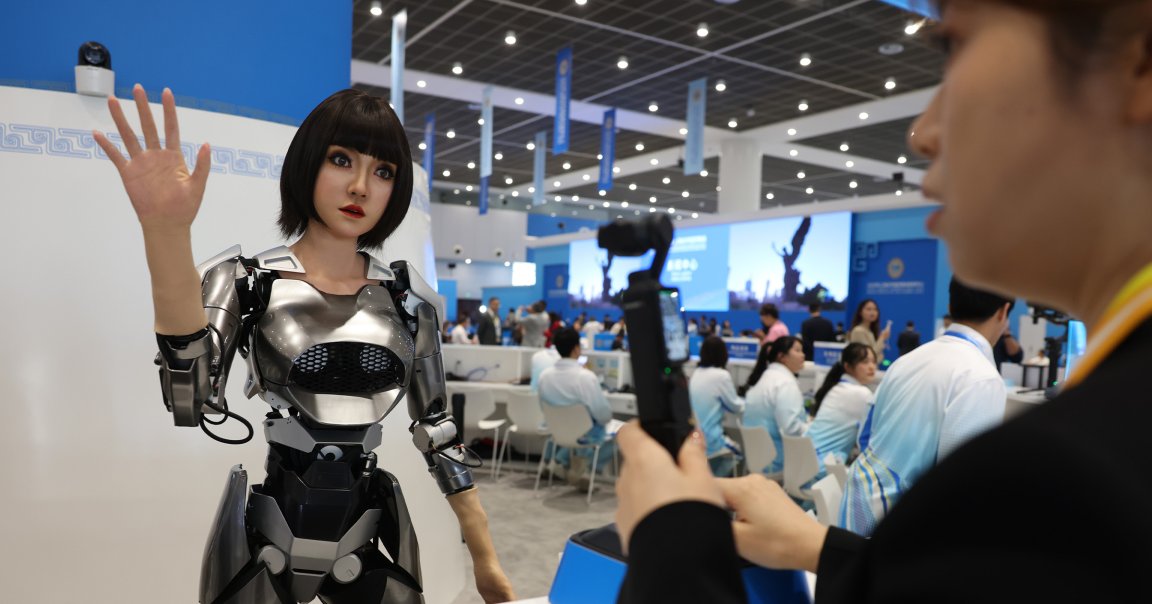
While the United States rushes head-first into a self-inflicted economic crisis in an attempt to develop AI with human-level intelligence, China is eying a different goal.
Last week, the Chinese State Council unveiled its ten-year plan to fully integrate AI into every aspect of the country’s economy by 2035. Called “AI+,” the ambitious plan sees AI becoming a “key growth engine for the country’s economic development,” a transformation mirroring that of the internet age.
As the Wall Street Journal recently pined, the People’s Republic has already embraced the practical rollout of AI to huge portions of the nation’s infrastructure, from manufacturing to meteorology, and even in Chinese-made self-driving Teslas.
It’ll be interesting to see how it all plays out, and what their effect the initiative has on the Chinese job market. One thing’s for sure: should China fail to achieve its lofty goals, the consequences for failure are significantly lower. While the US has all but bet the farm on the success of AI, Chinese tech firms like DeepSeek have changed the game by using significantly less resources.
Though the US spent nearly twelve times as much as China on AI development in 2024, recent metrics show the US is mere months ahead of the US in terms of AI benchmarks.
While US tech companies do eke out some practical AI software, they do so under the eye of a handful of the most powerful tech monopolies on the face of the Earth. As a result, most of the stuff that rises to the surface is geared toward capturing huge swaths of consumers — typically generative models for churning out text, images, or video.
In practice, this means the internet is being flooded with algorithmic slop. In the meantime, the US government is focusing $500 billion worth of its attention on developing a massive AI infrastructure project, in the hopes that it will bring the country that much closer to human-level artificial intelligence.
In China, meanwhile, that kind of state backing is reserved for companies working on pragmatic uses for AI.
As the WSJ noted, earlier this year the central government launched an AI investment fund worth some $8.4 billion, to support practical startups in conjunction with various funds run by local governments and state banks.
“They [China] see highly impactful AI applications not as something to theorize about in the future but as something to take advantage of here and now,” Julian Gewirtz, a former security official with the Biden administration told the WSJ.
Nowhere is this more apparent than Xiong’an, China’s “city of the future.” Located in the outer-Beijing province of Hebei, Xiong’an is a new city planned from the ground up around the integration of 5G, AI, autonomous driving, and renewable energy.
The fledgling city, which first sprouted up in 2017, is already integrating Chinese AI company DeepSeek at nearly every level: from agricultural planning to robotic baristas to triaging calls to the local government hotline.
There’s no escaping the wave of global AI hype. Will China’s push succeed? It’s tough to say: the country has a mixed record on sweeping initiatives to remake itself.
More on China: Elon Musk Is Getting Destroyed by Yet Another Chinese Company